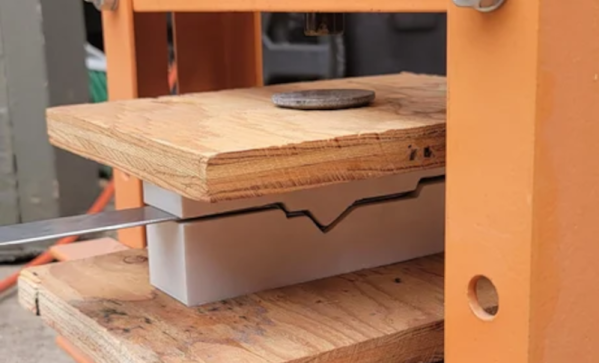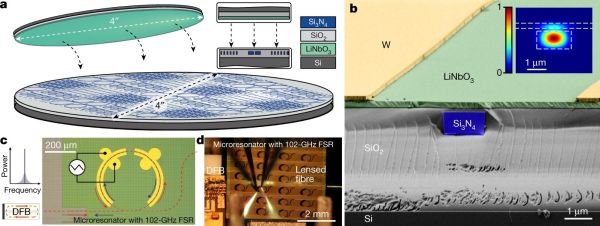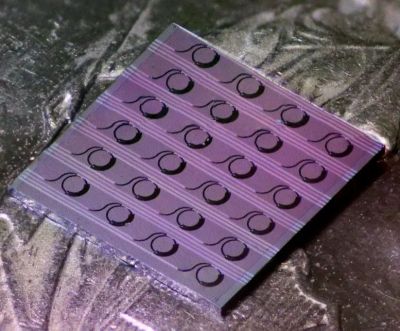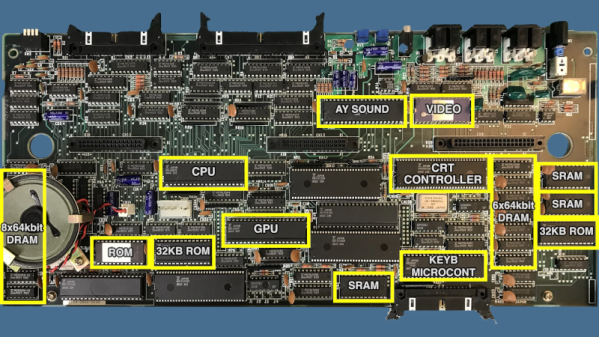[Noel’s Retro Lab] scored an unusual 1980s vintage computer sold in Japan and Spain. The Seconinsa FM-7 appears to be a popular Fujitsu Japanese computer altered to fit the Spanish market. They seem to be pretty rare, at least in our part of the world. The outside appearance was very nice for the time, with a large keyboard and plenty of expansion ports. But the board has an unusual feature considering the era — dual CPUs. One 6809 executed your program, and another 6809 handled graphics output. You can see the machine in the video below.
There are two 32K ROMs, but the machine specifications claim only 48K. After dumping the ROMs, it turns out one of the ROMs has two copies of the same data. You can imagine they might not want to decode the entire address space. It could be that they needed 16K of space for other devices.
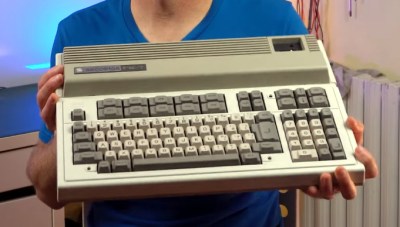 It wasn’t just the ROMs. The video RAM is pretty strange, too, as [Noel] explains. There are even some static RAMs the computer doesn’t claim. It appears these act as communication pipes between the two CPUs. In fact, it turns out that even the keyboard has its own 4-bit CPU, so the machine actually has a total of 3 CPUs!
It wasn’t just the ROMs. The video RAM is pretty strange, too, as [Noel] explains. There are even some static RAMs the computer doesn’t claim. It appears these act as communication pipes between the two CPUs. In fact, it turns out that even the keyboard has its own 4-bit CPU, so the machine actually has a total of 3 CPUs!
This was a heavy-duty design for the time it was built. [Noel] wanted to fire it up, but he had to figure out the cables since the computer didn’t have any with it. Some clever repurposing of stock cables provided monochrome video output. Color display was a bit more complicated, but not impossible.
[Noel] winds the video up with some history of the companies behind the machine. The Spanish government wanted to use the FM-7 in the classroom, but the program failed to materialize. Want to see what it was like to program the thing? Here’s the Basic reference manual (in Spanish). Most of the documentation for the machine is either in Spanish or Japanese.
While this certainly is a rare computer, at least there’s a record of its existence. If you want to see what a Japanese computer looked like a few decades earlier, check out the FACOM 128B.
Continue reading “Odd Retrocomputer Had A Graphics Coprocessor” →


